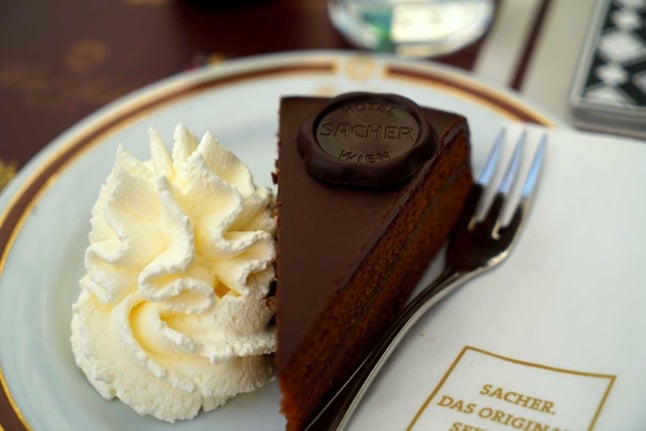Seven aspects of Austrian culture foreigners should embrace

Every country has its own unique culture. In Austria there are several aspects that foreigners should embrace, from adopting a healthy work-life balance to indulging in coffee and cake.
Adjusting to daily life in Austria as an international resident can take some getting used to.
First, there is the language that is officially German, but is in reality a combination of different regional Austrian dialects.
Then there are small differences that don’t seem important at first but become quintessentially Austrian the longer you spend in the country.
To help you settle in, here are seven aspects of Austrian culture that are definitely worth embracing.
A healthy work-life balance
In Austria, a healthy work-life balance is highly valued.
This is why a lunch break is an important part of the day, many people finish work at midday on Friday and employees enjoy more holidays each year than in the UK or the US.
READ MORE: Working in Vienna: How to find a job in the Austrian capital
For people from English-speaking countries where presenteeism is endemic in the workplace, it can be difficult to adjust to a slower pace of life.
But the benefits are well-worth it and there’s no better way to feel like a local than by clocking off early on a Friday afternoon.
Make the most of winter
Austria is famous for its mountains and ski resorts, so it’s no surprise that winter is a big deal in the country.
This means there is no other choice than to embrace winter - especially as it’s the longest part of the year.
One of the best ways to embrace winter in Austria is to join the other snow bunnies on the mountains by learning how to ski or snowboard.
But if fast-paced winter sports are not your thing, other ways to make the most of the winter months include going to the sauna, ice skating, cross-country skiing or snowshoeing (the winter version of hiking).
Not only is it refreshing to get out in the fresh air but Austria has some of the most stunning winter scenery in the world, and it would be a shame to miss out.
Indulge in cake without feeling guilty
Austrians love taking a break for coffee and cake.
It’s a time to stop work and socialise with friends or colleagues, or simply take some time out for yourself.
FOR MEMBERS: 11 life hacks to make you feel like a local in Vienna
In cities like Vienna, the cafe culture is built for sampling delicious coffee and cake, and in the countryside mothers love to bake cakes for the entire family.
Plus, there’s rarely any mention of the calories - so tuck in and enjoy.

A Sachertorte in Vienna. Photo by Tim Photoguy on Unsplash
A family-friendly approach to life
Austria is a very family-friendly country.
This is evident in the generous maternity leave laws, the emphasis on a healthy work-life balance and the number of multi-generational households.
This is in stark contrast to most English-speaking countries that tend to have a more individualistic culture and where children flee the nest as soon as they reach adulthood.
While it can be hard to embrace to a family-friendly culture and the expectations that go along with it, there are many benefits to the approach.
The most notable are a strong support network and an understanding from most employers that family comes first - no matter how crucial a job might be.
Become comfortable with (some) nudity
Most English-speaking countries have a reputation for being prudish when it comes to nudity - mainly because it’s rare for people to get naked in public.
But in Austria, people are a bit more comfortable with it.
For example, nudity is expected in the sauna, and in some places it’s even mandatory. Nudity is also commonplace at lakes across the country during the summer months.
So, embrace your exhibitionist side in Austria and don’t be afraid to show some flesh every now and again.
Be punctual
Anyone who has been left waiting for a friend will know how frustrating lateness can be.
Thankfully, people are generally punctual in Austria. However, they do expect the same from others and will be visibly offended if left to wait for too long - or too many times.
This unwritten rule applies to both work and social situations, such as going out for dinner at a restaurant or meeting a friend for a beer.
READ MORE: 11 maps that help you understand Austria today
There is even a limit on how much lateness can be tolerated, with 15 minutes typically the limit.
The reason for this is because lateness is considered rude and it’s always polite to be on time, or at least call and let the person know you will be late.
Austria's lack of tolerance for tardiness comes from the belief that anyone who arrives late has chosen to do so - which means the latecomer values their own time more than yours.
If you're just going to embrace one aspect of Austrian culture on this list, make sure it is punctuality.
Put some effort into presentation
Austrians love to do things properly and that includes setting the table.
If invited to the house of an Austrian friend for lunch or dinner, expect a beautiful spread of food, drinks and tasteful table decorations.
Even barbecues get some special attention with place settings and flowers.
Typically, there aren’t any shortcuts when it comes to presentation and the extra effort is often appreciated by guests.
It’s also nice to embrace your creative side and inner domestic goddess - at least sometimes.
Comments
See Also
Adjusting to daily life in Austria as an international resident can take some getting used to.
First, there is the language that is officially German, but is in reality a combination of different regional Austrian dialects.
Then there are small differences that don’t seem important at first but become quintessentially Austrian the longer you spend in the country.
To help you settle in, here are seven aspects of Austrian culture that are definitely worth embracing.
A healthy work-life balance
In Austria, a healthy work-life balance is highly valued.
This is why a lunch break is an important part of the day, many people finish work at midday on Friday and employees enjoy more holidays each year than in the UK or the US.
READ MORE: Working in Vienna: How to find a job in the Austrian capital
For people from English-speaking countries where presenteeism is endemic in the workplace, it can be difficult to adjust to a slower pace of life.
But the benefits are well-worth it and there’s no better way to feel like a local than by clocking off early on a Friday afternoon.
Make the most of winter
Austria is famous for its mountains and ski resorts, so it’s no surprise that winter is a big deal in the country.
This means there is no other choice than to embrace winter - especially as it’s the longest part of the year.
One of the best ways to embrace winter in Austria is to join the other snow bunnies on the mountains by learning how to ski or snowboard.
But if fast-paced winter sports are not your thing, other ways to make the most of the winter months include going to the sauna, ice skating, cross-country skiing or snowshoeing (the winter version of hiking).
Not only is it refreshing to get out in the fresh air but Austria has some of the most stunning winter scenery in the world, and it would be a shame to miss out.
Indulge in cake without feeling guilty
Austrians love taking a break for coffee and cake.
It’s a time to stop work and socialise with friends or colleagues, or simply take some time out for yourself.
FOR MEMBERS: 11 life hacks to make you feel like a local in Vienna
In cities like Vienna, the cafe culture is built for sampling delicious coffee and cake, and in the countryside mothers love to bake cakes for the entire family.
Plus, there’s rarely any mention of the calories - so tuck in and enjoy.

A family-friendly approach to life
Austria is a very family-friendly country.
This is evident in the generous maternity leave laws, the emphasis on a healthy work-life balance and the number of multi-generational households.
This is in stark contrast to most English-speaking countries that tend to have a more individualistic culture and where children flee the nest as soon as they reach adulthood.
While it can be hard to embrace to a family-friendly culture and the expectations that go along with it, there are many benefits to the approach.
The most notable are a strong support network and an understanding from most employers that family comes first - no matter how crucial a job might be.
Become comfortable with (some) nudity
Most English-speaking countries have a reputation for being prudish when it comes to nudity - mainly because it’s rare for people to get naked in public.
But in Austria, people are a bit more comfortable with it.
For example, nudity is expected in the sauna, and in some places it’s even mandatory. Nudity is also commonplace at lakes across the country during the summer months.
So, embrace your exhibitionist side in Austria and don’t be afraid to show some flesh every now and again.
Be punctual
Anyone who has been left waiting for a friend will know how frustrating lateness can be.
Thankfully, people are generally punctual in Austria. However, they do expect the same from others and will be visibly offended if left to wait for too long - or too many times.
This unwritten rule applies to both work and social situations, such as going out for dinner at a restaurant or meeting a friend for a beer.
READ MORE: 11 maps that help you understand Austria today
There is even a limit on how much lateness can be tolerated, with 15 minutes typically the limit.
The reason for this is because lateness is considered rude and it’s always polite to be on time, or at least call and let the person know you will be late.
Austria's lack of tolerance for tardiness comes from the belief that anyone who arrives late has chosen to do so - which means the latecomer values their own time more than yours.
If you're just going to embrace one aspect of Austrian culture on this list, make sure it is punctuality.
Put some effort into presentation
Austrians love to do things properly and that includes setting the table.
If invited to the house of an Austrian friend for lunch or dinner, expect a beautiful spread of food, drinks and tasteful table decorations.
Even barbecues get some special attention with place settings and flowers.
Typically, there aren’t any shortcuts when it comes to presentation and the extra effort is often appreciated by guests.
It’s also nice to embrace your creative side and inner domestic goddess - at least sometimes.
Join the conversation in our comments section below. Share your own views and experience and if you have a question or suggestion for our journalists then email us at [email protected].
Please keep comments civil, constructive and on topic – and make sure to read our terms of use before getting involved.
Please log in here to leave a comment.